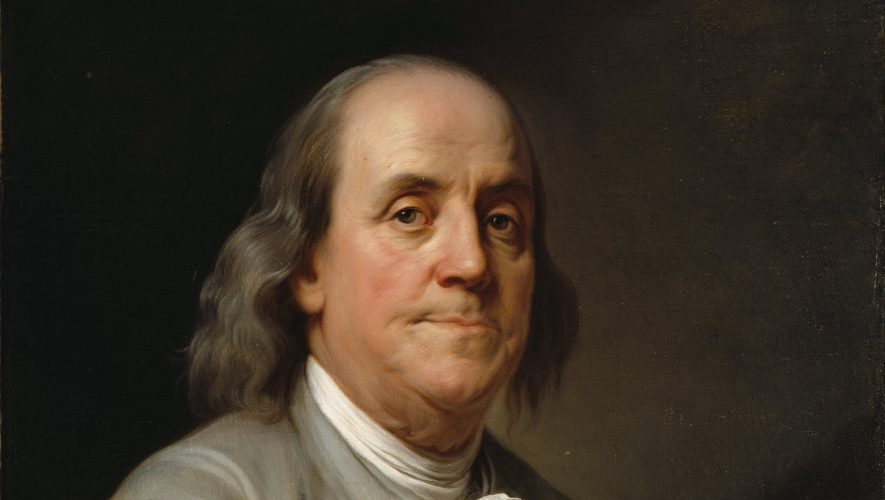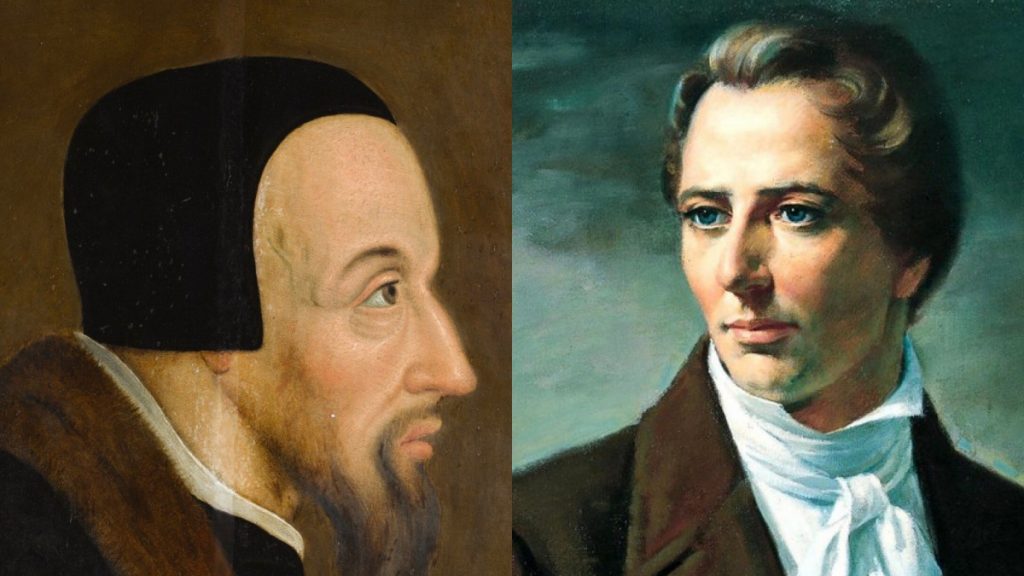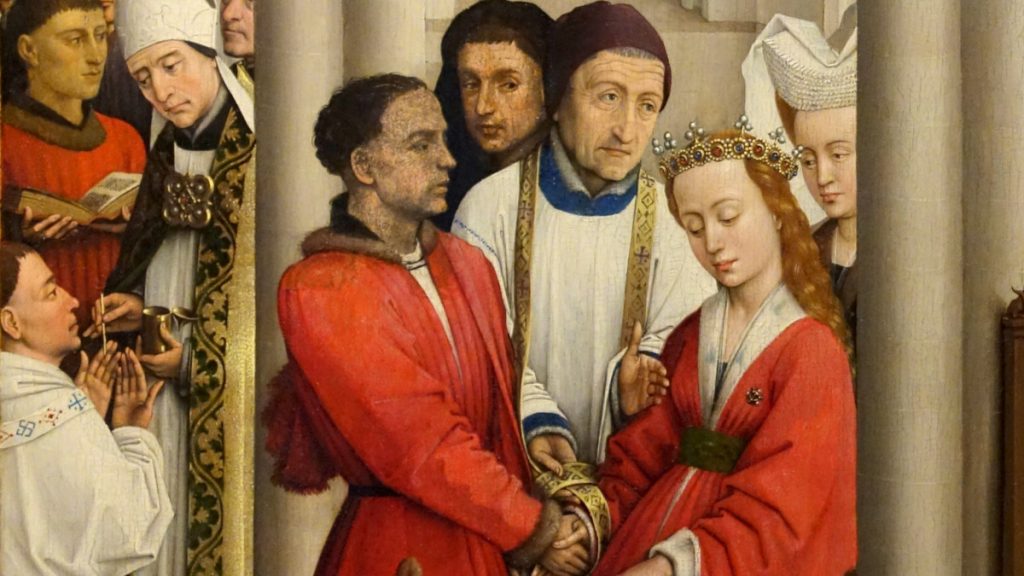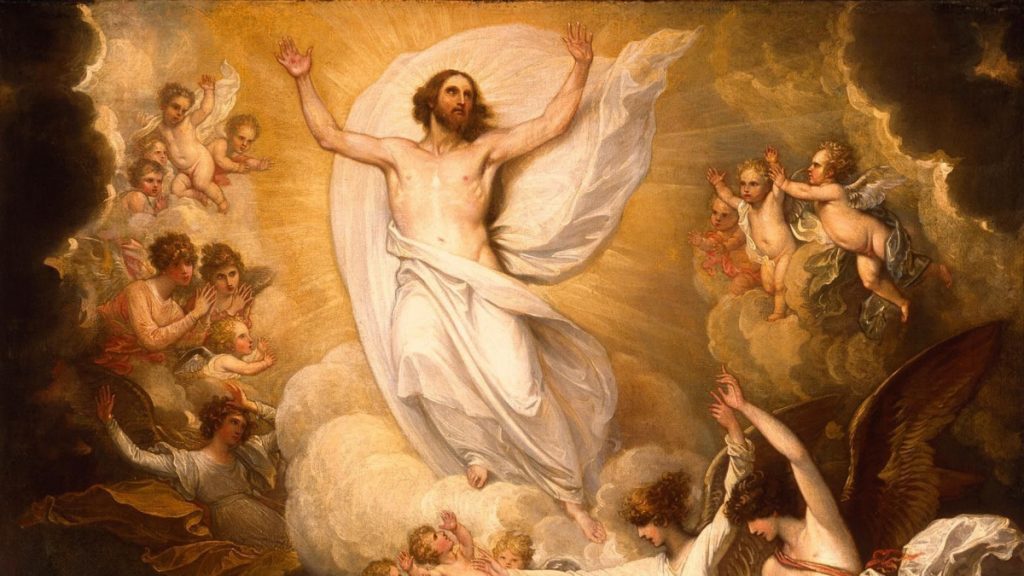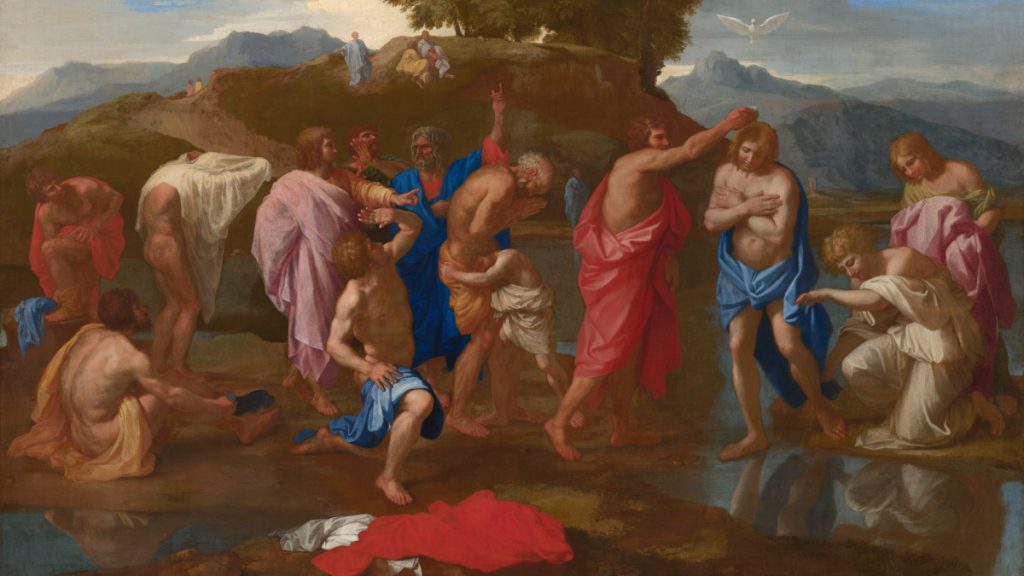(Updated May 28, 2025)
Benjamin Franklin (1706-1790) was an American Founder. An entrepreneur, scientist, and statesmen, Franklin served in many roles during the colonial, Revolutionary, and early Republic periods, including as the first Postmaster General of the United States, and as America’s foreign minister to France.
Speeches and Other Public Acts
Benjamin Franklin, A Proclamation for a General Fast (December 9, 1747)
Franklin assisted members of the Governor’s Council in writing this Proclamation. He records the details in his Autobiography:
Calling in the Aid of Religion, I propos’d to them the Proclaiming a Fast, to promote Reformation, and implore the Blessing of Heaven on our Undertaking. They embrac’d the Motion, but as it was the first Fast ever thought of in the Province, the Secretary had no Precedent from which to draw the Proclamation. My Education in New England, where a Fast is proclaim’d every Year, was here of some Advantage. I drew it in the accustomed Stile, it was translated into German, printed in both Languages and divulg’d thro’ the Province.
The words of the Proclamation:
Forasmuch as it is the Duty of Mankind, on all suitable Occasions, to acknowledge their Dependence on the Divine Being, to give Thanks for the Mercies received, and no less to deprecate his Judgments, and humbly pray for his Protection: And as the Calamities of a bloody War, in which our Nation is now engaged, seem every Year more nearly to approach us, and the Expedition formed for the Security of these Plantations, hath been laid aside…and there is just Reason to fear, that unless we humble ourselves before the Lord, and amend our Ways, we may be chastised with yet heavier Judgments: We have therefore thought fit, on due Consideration thereof, to appoint Thursday, the seventh Day of January next, to be observed throughout this Province as a Day of Fasting and Prayer; exhorting all, both Ministers and People, to observe the same with becoming Seriousness and Attention, and to join with one Accord in the most humble and fervent Supplications, That Almighty God would mercifully interpose, and still the Rage of War among the Nations, and put a Stop to the Effusion of Christian Blood: That he would preserve and bless our Gracious King, guide his Councils, and give him Victory over his Enemies, to the Establishing a speedy and lasting Peace: That he would bless, prosper and preserve all the British Colonies, and particularly, that he would take this Province under his Protection, confound the Designs and defeat the Attempts of its Enemies, and unite our Hearts, and strengthen our Hands in every Undertaking that may be for the Public Good, and for our Defense and Security in this Time of Danger: That he would graciously please to bless the succeeding Year with Health, Peace and Plenty, and enable us to make a right Use of his late afflicting Hand, in a sincere and thorough Reformation of our Lives and Manners, to which the Ministers of all religious Societies are desired earnestly to exhort their People. And it is recommended to all Persons to abstain from servile Labor on the said Day.
Benjamin Franklin, An Address to the Public from the Pennsylvania Society for Promoting the Abolition of Slavery, and the Relief of Free Negroes Unlawfully Held in Bondage (November 9, 1789)1
Ending Slavery
Encouraged by this success [of the Society], and by the daily progress of that luminous and benign spirit of liberty which is diffusing itself throughout the world, and humbly hoping for the continuance of the divine blessing on our labors, we have ventured to make an important addition to our original plan, and do therefore earnestly solicit the support and assistance of all who can feel the tender emotions of sympathy and compassion, or relish the exalted pleasure of beneficence.
Slavery is such an atrocious debasement of human nature that its very extirpation, if not performed 157 |158 with solicitous care, may sometimes open a source of serious evils.
The unhappy man who has long been treated as a brute animal, too frequently sinks beneath the common standard of the human species. The galling chains that bind his body do also fetter his intellectual faculties and impair the social affections of his heart. Accustomed to move like a mere machine, by the will of a master, reflection is suspended; he has not the power of choice; and reason and conscience have but little influence over his conduct, because he is chiefly governed by the passion of fear. He is poor and friendless, perhaps worn out by extreme labor, age, and disease.
Under such circumstances, freedom may often prove a misfortune to himself, and prejudicial to society.
Attention to emancipated black people, it is therefore to be hoped, will become a branch of our national policy; but, as far as we contribute to promote this emancipation, so far that attention is evidently a serious duty incumbent on us, and which we mean to discharge to the best of our judgment and abilities.
To instruct, to advise, to qualify those, who have been restored to freedom, for the exercise and enjoyment of civil liberty, to promote in them habits of industry, to furnish them with employments suited to their age, sex, talents, and other circumstances, and to procure their children an education calculated for their future situation in life; these are the great outlines of the annexed plan, which we have adopted, and which we conceive will essentially promote the 158 | 159 public good, and the happiness of these our hitherto too much neglected fellow-creatures.
Letters
Benjamin Franklin, To George Whitefield (June 19, 1764)
But Cotton [Mather] I remember in the Vigor of his Preaching and Usefulness. And particularly in the Year 1723, now half a Century since, I had reason to remember, as I still do a Piece of Advice he gave me. I had been some time with him in his Study, where he condescended to entertain me, a very Youth, with some pleasant and instructive Conversation. As I was taking my leave he accompanied me through a narrow Passage at which I did not enter, and which had a Beam across it lower than my Head. He continued Talking which occasioned me to keep my Face partly towards him as I retired, when he suddenly cried out, “Stoop! Stoop!” Not immediately understanding what he meant, I hit my Head hard against the Beam. He then added, “Let this be a Caution to you not always to hold your Head so high; Stoop, young Man, stoop—as you go through the World—and you’ll miss many hard Thumps.” This was a way of hammering Instruction into one’s Head: And it was so far effectual, that I have ever since remembered it, though I have not always been able to practice it.
Benjamin Franklin, To George Whitefield (June 19, 1764)
Your frequently repeated Wishes and Prayers for my Eternal as well as temporal Happiness are very obliging. I can only thank you for them, and offer you mine in return. I have my self no Doubts that I shall enjoy as much of both as is proper for me. That Being who gave me Existence, and through almost threescore Years has been continually showering his Favors upon me, whose very Chastisements have been Blessings to me, can I doubt that he loves me? And if he loves me, can I doubt that he will go on to take care of me not only here but hereafter? This to some may seem Presumption; to me it appears the best-grounded Hope; Hope of the Future; built on Experience of the Past.
